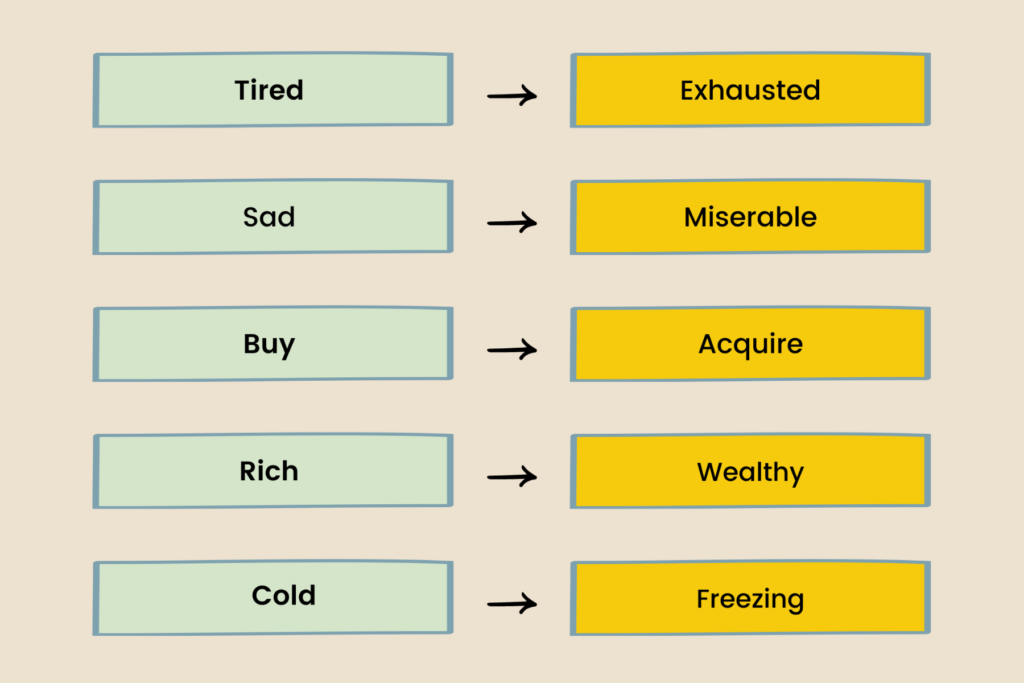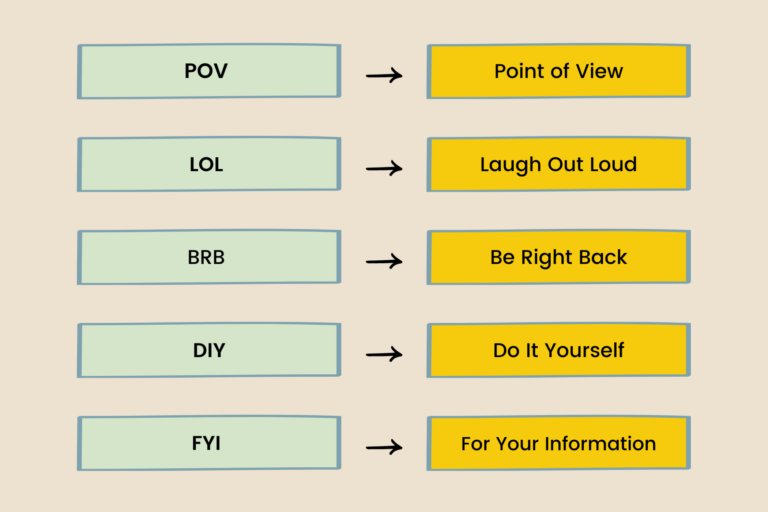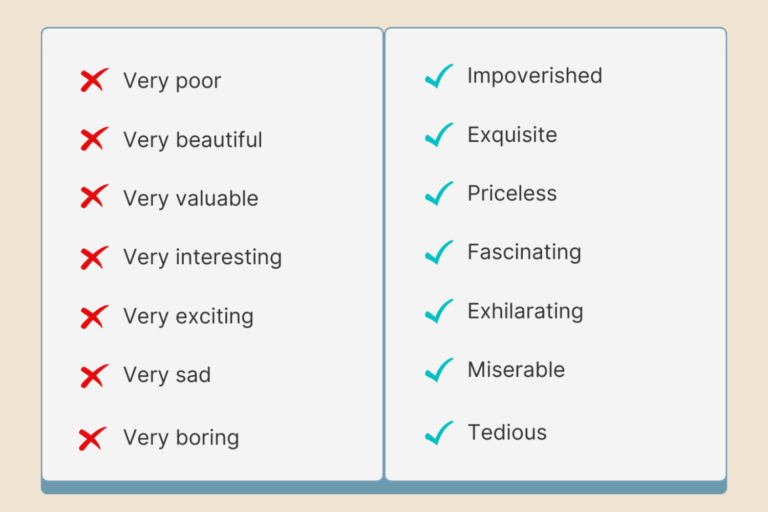
Learning English is a journey, and upgrading your vocabulary is one of the most effective ways to enhance your language skills. Whether you’re just starting out or refining what you already know, expanding your vocabulary is crucial for progress. But here’s the thing—not all vocabulary is the same. There’s a clear distinction between basic and advanced English, and recognizing this gap can greatly enhance your ability to express yourself.
When you first start learning English, you’re likely introduced to simple, everyday words – those are your basics. They help you get through day-to-day conversations, navigate social situations, and manage essential communication. But what happens when you want to go beyond that? What happens when you aim to write an impressive essay, hold a professional meeting, or express more complex thoughts? That’s where advanced English comes in.
However, transitioning from basic to advanced English doesn’t happen overnight. It takes targeted practice and a deeper understanding of the language. It’s not just about knowing more words; it’s about choosing the right words for the right context. In advanced English, even subtle shifts in vocabulary can dramatically change the tone and effectiveness of your message.
In this post, I’m going to guide you through the key vocabulary differences between basic and advanced English, providing you with essential words that will elevate your communication skills. We’ll explore common phrases you might be using now, and I’ll show you how to replace them with more powerful alternatives. Whether you’re preparing for an exam, aiming for fluency, or just looking to express yourself more precisely, this guide will be your stepping stone to mastering the language. Let’s dive into key vocabulary shifts that will help you take your English to the next level.
- Top 10 Safest Cities In The World For Travelers 2024
- Top 15 Best Cities To Live In The World For 2024
- 75 Mind Blowing Psychology Facts You Need to Know
- Beneath the Alps: The Longest Tunnel in the World
- Top 10 Most Consumed Fruits in the World
Basic Adjectives vs. Advanced Adjectives
Basic adjectives serve a fundamental purpose, but advanced adjectives can significantly change the context and depth of your sentences. By choosing more sophisticated alternatives, you can convey emotions, create vivid imagery, and engage your audience more effectively.
| Basic Adjectives | Advanced Adjectives | Sentence Examples |
|---|---|---|
| Good | Excellent, Superb, Fantastic | Instead of saying “The movie was good,” say “The movie was fantastic.” |
| Bad | Terrible, Horrible, Dreadful | Replace “The weather is bad” with “The weather is terrible.” |
| Big | Enormous, Huge, Colossal | Rather than “The house is big,” try “The house is enormous.” |
| Small | Tiny, Petite, Minuscule | Instead of “The room is small,” say “The room is tiny.” |
| Happy | Elated, Ecstatic, Jubilant | Replace “I’m happy” with “I’m ecstatic.” |
| Sad | Miserable, Sorrowful | Instead of “She felt sad,” say “She felt miserable.” |
| Tired | Exhausted, Fatigued | Rather than “I’m tired,” use “I’m exhausted.” |
More Basic English Adjectives And Their Advanced Alternatives:
- Fast → Swift, Rapid
- Slow → Sluggish, Leisurely
- Smart → Brilliant, Intelligent
- Strong → Powerful, Sturdy
- Weak → Feeble, Frail
- Easy → Effortless, Simple
- Hard → Challenging, Arduous
- Funny → Hilarious, Amusing
- Boring → Dull, Monotonous
- Rich → Wealthy, Affluent
- Poor → Impoverished, Destitute
- Hot → Scorching, Boiling
- Cold → Freezing, Icy
- Bright → Luminous, Radiant
- Dark → Gloomy, Shadowy
- Calm → Tranquil, Serene
- Noisy → Boisterous, Clamorous
- Friendly → Amiable, Cordial
- Beautiful → Stunning, Gorgeous
- Clear → Obvious, Apparent
- Dangerous → Hazardous, Risky
- Difficult → Challenging, Daunting
- Interesting → Engaging, Intriguing
- Attractive → Alluring, Captivating
- Kind → Benevolent, Compassionate
- Lazy → Indolent, Lethargic
- Friendly → Amicable, Affable
- Clever → Astute, Ingenious
- Powerful → Mighty, Potent
- Creative → Innovative, Imaginative
- Comfortable → Cozy, Inviting
- Exciting → Thrilling, Exhilarating
- Essential → Vital, Crucial
- Loud → Deafening, Thunderous
- Foolish → Irrational, Imprudent
- Ease → Alleviate, Mitigate
- Careful → Cautious, Vigilant
Also Read: Stop saying ‘Very’: Better Words to Use Instead of ‘Very’
Basic Verbs vs. Advanced Verbs
While basic verbs communicate fundamental actions, advanced verbs add layers of meaning and precision, enabling you to convey your thoughts more effectively. By incorporating sophisticated alternatives, you can elevate your writing and speaking, making your communication more dynamic and engaging.
| Basic Verbs | Advanced Verbs | Sentence Examples |
|---|---|---|
| Eat | Devour, Consume | Instead of saying “They eat fruits.” say “They consume fruits.” |
| Make | Create, Craft, Construct | Replace “She makes a beautiful painting.” with “She creates a beautiful painting.” |
| Get | Obtain, Acquire | Rather than “I get new skills.,” try “I acquire new skills.” |
| See | Perceive, Observe | Rather than “I see the sunset,” use “I observe the sunset.” |
| Go | Proceed, Depart | Replace “They go to the meeting.” with “They depart for the meeting..” |
| Help | Assist, Support | Instead of “She helps her friend.” say “She assists her friend.” |
| Say | Declare, Announce, State | Rather than “He says his opinion.” use “He states his opinion.” |
More Basic English Verbs And Their Advanced Alternatives:
- Buy → Purchase, Acquire
- Ask → Inquire, Request
- Show → Demonstrate, Exhibit
- Build → Construct, Assemble
- Start → Begin, Commence
- End → Conclude, Terminate
- Talk → Converse, Discuss
- Call → Summon, Contact
- Stop → Cease, Halt
- Repeat → Reiterate, Rehash
- Look → Glance, Gaze
- Analyze → Examine, Scrutinize
- Work → Labor, Operate
- Apply → Implement, Utilize
- Gather → Assemble, Accumulate
- Fix → Repair, Mend
- Break → Fracture, Shatter
- Apologize → Regret, Express remorse
- Move → Relocate, Shift
- Evaluate → Assess, Appraise
- Choose → Select, Opt
- Reduce → Diminish, Curtail
- Love → Adore, Cherish
- Confirm → Validate, Authenticate
- Think → Contemplate, Ponder
- Run → Sprint, Dash
- Examine → Analyze, Investigate
- Sleep → Slumber, Doze
- Illustrate → Depict, Demonstrate
- Teach → Instruct, Educate
- Read → Peruse, Scan
- Destroy → Annihilate, Demolish
- Write → Compose, Inscribe
- Travel → Journey, Voyage
- Begin → Commence, Initiate
- Continue → Persist, Proceed
- Improve → Enhance, Refine
- Share → Distribute, Convey
- Understand → Comprehend, Grasp
- Decide → Determine, Resolve
- Often → Frequently, Regularly
- Eliminate → Eradicate, Exterminate
- Worsen → Deteriorate, Exacerbate
- Inspect → Scrutinize, Examine
- Expand → Broaden, Amplify
- Imitate → Emulate, Replicate
- Climb → Ascend, Scale
- Consider → Contemplate, Deliberate
- Support → Endorse, Advocate
Suggested Post: 7 Free AI Courses in 2024 with Certificates
Basic Nouns vs. Advanced Nouns
Here are some basic nouns and their advanced alternatives. Discover a variety of common nouns and their advanced counterparts to enhance your writing and speaking skills, making your language more engaging and precise.
- Idea → Concept, Notion
- Problem → Issue, Dilemma
- Story → Narrative, Account
- Goal → Objective, Aim
- Money → Wealth, Finances
- People → Individuals, Humans
- Place → Location, Venue
- Time → Duration, Period
- Man → Gentleman
- Job → Occupation, Profession
- Woman → Lady
- Child → Kid, Offspring
- School → Institution, Academy
- Teacher → Educator, Instructor
- Question → Inquiry, Query
- Success → Achievement, Accomplishment
- Answer → Response, Reply
- Car → Vehicle, Automobile
- Event → Occasion, Gathering
- Risk → Danger, Hazard
- Opinion → Viewpoint, Perspective
- Memory → Remembrance, Recollection
- Plan → Strategy, Scheme
- Gift → Present, Offering
- Knowledge → Understanding, Insight
- Environment → Surroundings, Ecosystem
Basic Adverbs vs. Advanced Adverbs
Here are some basic adverbs and their advanced alternatives. While basic adverbs convey simple meanings, advanced adverbs add depth and nuance, allowing you to express your thoughts more precisely.
- Quickly → Rapidly, Swiftly
- Slowly → Gradually, Leisurely
- Often → Frequently, Regularly
- Again → Repeatedly, Anew
- Well → Proficiently, Efficiently
- Sometimes → Occasionally, Periodically
- Badly → Poorly, Inadequately
- Easily → Effortlessly, Smoothly
- Loudly → Boisterously, Clamorously
- Quietly → Softly, Discreetly
- Always → Perpetually, Consistently
- Happily → Joyfully, Cheerfully
- Sadly → Mournfully, Gloomily
- Carefully → Cautiously, Meticulously
- Carelessly → Recklessly, Negligently
- Rarely → Seldom, Infrequently
- Soon → Shortly, Imminently
- Mostly → Predominantly, Mainly
- Hardly → Barely, Scarcely
- Never → Not at all, Under no circumstances
- Totally → Completely, Entirely
- Suddenly → Abruptly, Unexpectedly
Final Thoughts
Enhancing your English skills involves understanding the difference between basic and advanced vocabulary. By expanding your vocabulary, you can communicate more effectively and express your thoughts with greater precision and nuance. Throughout this post, we explored various categories of words highlighting how simple terms can be elevated to more sophisticated alternatives.
Remember, language is all about context. Some of these words and phrases might have different meanings depending on the situation, so be mindful of how you use them. The goal isn’t just to sound smarter but to convey your ideas more clearly and engagingly.
As you practice integrating these advanced words and phrases, you’ll gain confidence in your language abilities and develop a richer understanding of English. Embrace the challenge, take your vocabulary to the next level, and watch your proficiency flourish! By doing so, you’ll not only enhance your communication skills but also open doors to new opportunities in both personal and professional settings. Keep learning, stay curious, and enjoy the journey!


